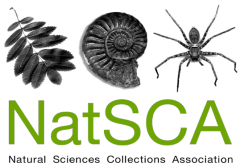Research Assistant (Human Origins and Behaviour)
The Natural History Museum is one of the world’s leading museums, internationally recognised for its dual role as a centre of excellence in scientific research and as a leader in the presentation of natural history through exhibitions, public programmes, publications and the web.
The Human Origins Research Group in the Department of Earth Sciences is looking to recruit a Research Assistant to support research and administration within the group.
The main role of the Research Assistant will be to assist researchers in the preparation of publications and websites, collecting data (e.g. photography, scanning, 3D microscopy), public engagement activities, answering enquires and teaching.
The Research Assistant will also contribute to collection based research projects relating to human origins and human behaviour and to the collation, analysis and archiving of research data sets.
This is a 3 years full time position, funded by the Calleva Foundation.
Salary: £24,500 per annum plus benefits
Contract: 36 months fixed term contract
Closing date: 9am on Friday 22 April 2016
Role competences:
BEFORE beginning your application - Please read the section below about the ‘Online Application Process’ carefully.
If you wish to be considered for this role you will need to address each of the following competences in the ‘other information’ section of your online application:
1. Post graduate qualification in palaeoanthropology or related discipline
2. Knowledge of hominin fossil record
3. Experience in human taphonomy
4. Knowledge of Palaeolithic bone and antler tools and/or Palaeolithic art
5. Experience working with fragile archaeological materials.
6. Experience working with laser scans, CT scans, microscopy (SEM and 3D microscopy) and/or replication.
7. Expertise in human osteology and/or mammal osteology.
8. Excellent verbal and written communication skills.
9. Flexible with a proven ability to work well within a team structure. Well organised with effective time management skills and an ability to undertake multiple tasks through to completion, sometimes working to tight deadlines.
10. Strong attention to detail, with ability to undertake methodical tasks to a high-level of accuracy.
11. Good photographic skills.
